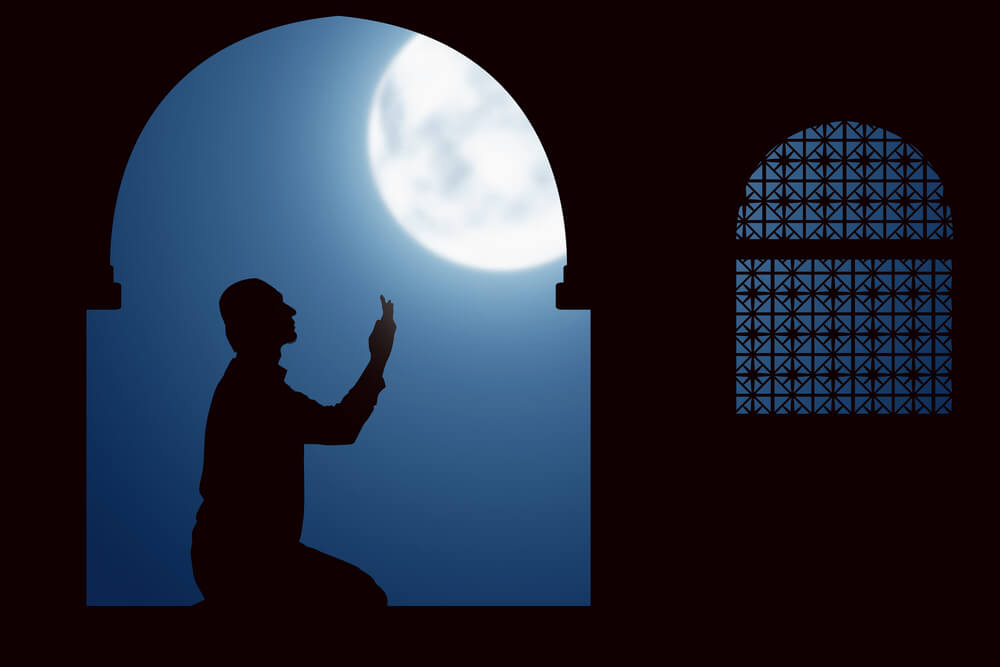Isra and Miraj: What Is Shab-e-Meraj and How Is It An Important Day for Muslims?
The Isra and Miraj are the two pieces of a Night Journey that, as indicated by Islam, Muhammad (PBUH) took amid a solitary night around the year 621 CE.
It has been depicted as both a physical and a profound voyage. A concise sketch of the story is in Surah al-Isra of the Quran is narrated, and different subtleties originate from the hadith, which are accumulations of the reports, lessons, deeds, and idioms of Muhammad (PBUH).
In the Isra’, Muhammad (PBUH) headed out on
Islamic Sources of Isra and Miraj
The event of Isra and Mi’raj are referred to shortly in the Qur’an. For more noteworthy detail, they have been examined in Hadith writing, revealed adages of the prophet which supplement the Qur’an. Of the hadith, two of the best known are by Anas ibn Malik, who might have been a young man at the time of prophet’s adventure of Mi’raj. Ibn ‘Abbas is another source that challenges the standard depiction of the Mi’raj. He was like a young man at the season of the voyage.
What The Qur’an Says About Isra and Miraj?
Inside the Qur’an itself, Sura Al-Isra, located in the seventeenth part. In it, the primary refrain briefly portrays the Isra. There is likewise some data in a later stanza and another surah, a Najm, which a few researchers state is identified with the Isra and Mi’raj.
Greatness to Him Who conveyed His cherished by night from the Sacred Masjid to the Furthest Masjid, whose regions We have favored, to indicate him of Our miracles!
Keep in mind when We said to you that your Lord includes humanity in His insight. Nor did We make the vision We indicated you aside from as a test to individuals, as additionally the abhorrent tree in the Qur’an. [Quran 17:60]
And he certainly saw him in another descent. At the Lote Tree of the Utmost Boundary – Near it is the Garden of Refuge – When there covered the Lote Tree that which covered [it]. The sight [of the Prophet] did not swerve, nor did it transgress [its limit]. He certainly saw of the greatest signs of his Lord. [Quran 53:13– 18]
Al-Masjid al-Aqsa
Thought to be alluded to in the Quran as “The most remote mosque”, al-Aqsa is viewed as the third holiest Islamic site, after Mecca and Medina.
The spot is described in the Qur’an as “the Farthest Masjid“, from Sura al-Isra, has been verifiably considered as alluding to the site of the advanced al-Aqsa Mosque in Jerusalem. The Jerusalem translation was progressed by the soonest biographer of Muhammad (PBUH) (ca. 570 – 632) – Ibn Ishaq (ca. 704 – 761/770) – and is upheld by various ahadith. The structure of the Masjid in Jerusalem was absent amid the
Therefore, the expression “Al-Masjidil-Aqsa” implies that there was a spot, however not really a structure, where Muhammad prostrated to God or revered Him, in the “Favored Region.” When the Rashid caliph ‘Umar vanquished Jerusalem after Muhammad’s demise, a petition house was remade on the site. The structure was extended by the Umayyad caliph ‘Abd al-Malik ibn Marwan and wrapped up by his child al-Walid I in 705. The structure was over and over obliterated by quakes and remade, until the reproduction in 1033 CE, by the Fatimid caliph ‘Ali az-Zahir, and that rendition of the structure is the thing that can be found in the present day.
Islamic researchers, for example, Heribert Busse and Neal Robinson, trust that Jerusalem is the initially planned understanding of the Qur’an. Muslims used to supplicate towards Jerusalem, yet as indicated by the accompanying refrains of their Quran, God altered this course, the Qiblah, to rather direct to al-Masjid al-Haram:
What’s more, along these lines we have made you an equitable network that you will be observers over the general population and the Messenger will be an observer over you. Also, we didn’t make the qiblah which you used to look with the exception of that We may make clear who might pursue the Messenger from who might walk out on his heels. Also, to be sure, it is troublesome aside from those whom Allah has guided. Also, never would Allah have made you lose your confidence. For sure Allah is, to the general population, Kind and Merciful. We have absolutely observed the turning of your face, [O Muhammad], at the paradise, and We will doubtlessly swing you to a qiblah with which you will be satisfied. So turn your face toward al-Masjid al-Haram. Also, wherever you [believers] are, turn your appearances toward it [in prayer]. To be sure, the individuals who have been given the Scripture understand that it is a reality from their Lord. What’s more, Allah isn’t uninformed of what they do. — Quran, Chapter 2 (Al-Baqarah) refrain 143-144
What Hadith Says About Isra and Miraj?

From different hadiths, we adopt a lot more noteworthy detail. The Isra is the piece of the voyage of Muhammad (PBUH) from Mecca to Jerusalem. It started when Muhammad (PBUH) was in the Great Mosque, and the Jibrīl came to him, and presented to
It was told by Anas ibn Malik that Muhammad (PBUH) stated: “Jibra’il presented to me a vessel of wine, a vessel of water and a vessel of milk, and I picked the milk. Jibra’il stated: ‘You have picked the Fitrah (natural instinct).'” In the second piece of the voyage, the Mi’raj (an Arabic word that truly signifies “stepping stool”), Jibra’il took him to the sky, where he visited the seven phases of paradise, and talked with the before prophets, for example, Abraham (ʾIbrāhīm), Moses (Musa), John the Baptist (Yaḥyā ibn Zakarīyā), and Jesus (Isa). Muhammad (PBUH) was then taken to Sidrat al-Muntaha – a blessed tree in the seventh paradise that Gabriel was not permitted to pass.
As per Islamic custom, God educated Muhammad (PBUH) that Muslims must ask fifty times each day; nonetheless, Musa (Am) revealed to Muhammad that it was extremely troublesome for the general population and asked Muhammad (PBUH) to request a decrease until at long last it was diminished to five times each day.
The Miraj
There are distinctive records of what happened amid the Mi’raj, however most stories have similar components: Muhammad (PBUH) climbed into paradise with the holy messenger Gabriel and met an alternate prophet at every one of the seven dimensions of paradise; first Adam (Am.), later John the Baptist, then Isa (Am.), after him Joseph, then Idris (Am., at that point Harun (Am.), at that point Musa (Am.), and in conclusion Ibrahim (Am.). After Muhammad meets with Abraham, he proceeds to meet God without Gabriel. God discloses to Muhammad that his kin must implore 50 times each day, yet as Muhammad (PBUH) dives back to Earth, he meets Musa who advises Muhammad (PBUH) to return to Allah the Most Exalted and request fewer salat since 50 Rak’at is too much. Muhammad (PBUH) goes among Musa (Am.) and Allah the Most High multiple times until the petitions are diminished to the five day by day salat, which Allah the Most High will remunerate ten times. That once more, Musa (Am.) advised prophet Muhammad (PBUH) to request much lesser however Muhammad (PBUH) felt embarrassed and said that even with lesser petition times, his supporters probably won’t perform tenaciously and said he is grateful for the five.
History of Shab e Meraj
The night started off with Angel Jibrael appearing before the Prophet (PBUH). One night as the Muhammad (PBUH) was dozing in the Kabah, Angel Jibrael appeared and cleaned his heart and stomach out with Zam. Thusly he took Muhammad (PBUH) from the Masjid
Shab E Meraj 2024 Date in India
Like every year, this year 2024 Shab e Meraj will be observed on 8 February 2024 throughout Asian countries. As per the Islamic diary, this year 27th Day of Rajab is on the 8th of February (the 7th Month of the Islamic Calendar).
Shab E Meraj in India, Pakistan & Bangladesh
Like Other Muslim countries, Shab E Meraj will be observed by the Indian Muslims. Most Muslims will spend the valuable night reciting the holy Quran as well as performing Nafl Salah. They also pray for themselves as well as for the Muslim Ummah. They seek Almighty prosperity, and happiness for their family members. They also make Dua for them. Ziyarat to the graveyard is another option of praying.
People will do fasting on the occasion of Shab E Meraj. In a word, all the Muslim ummah seek mercy from







